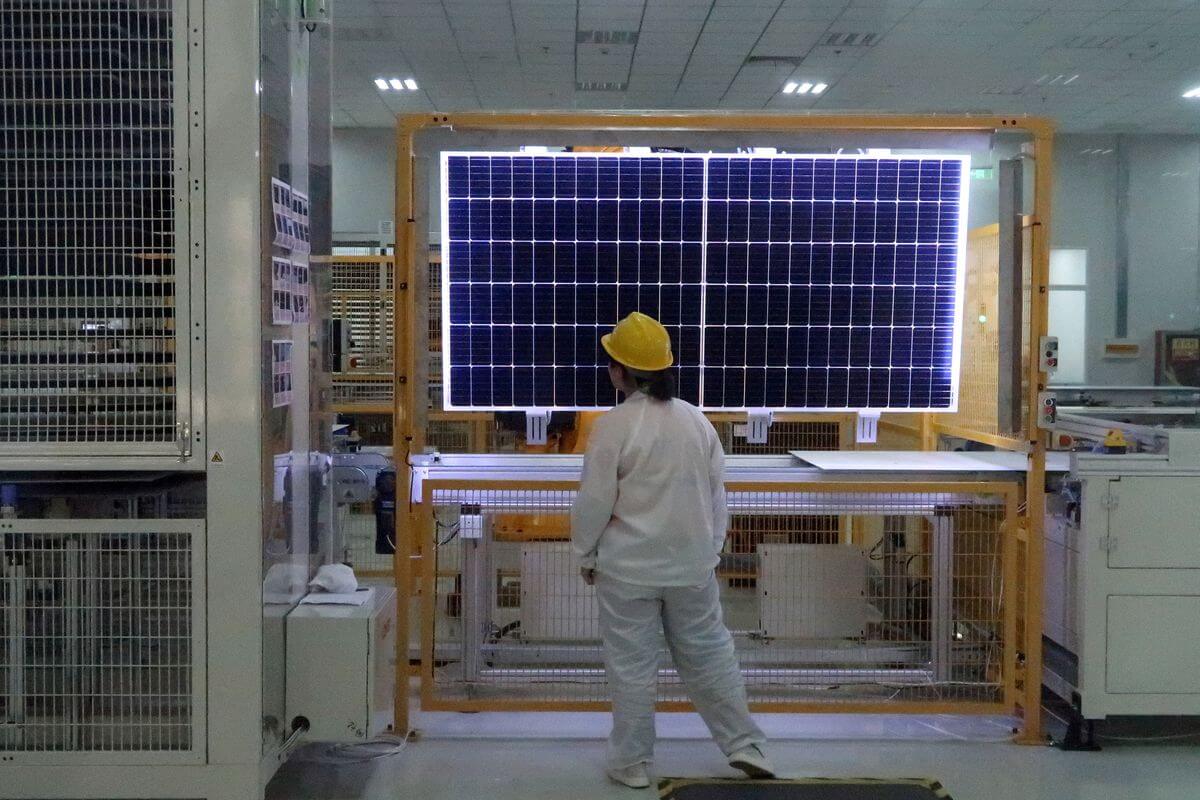According to federal customs officials and industry sources, the US has seized over 1,000 shipments of Chinese solar energy components under the Uyghur Forced Labor Protection Act (UFLPA) since June.
US Customs and Border Protection (CBP) officials told Reuters that they have blocked about 1,053 shipments from 21 June, when the UFLPA went into effect, to 25 October, and haven’t released any cargo yet. The agency also did not disclose the manufacturers or the number of solar equipment in the shipments, citing federal law protecting confidential trade secrets. They did not reveal the duration of the seizure or when they would be released or rejected either. “Ultimately, it is contingent upon how quickly an importer is able to submit sufficient documentation,” CBP spokesperson Rhonda Lawson emphasised.
A new law banning imports from Xinjiang because of slave labor makes over 1,000 shipments of solar panels pile up in US ports.
— Jojje Olsson (@jojjeols) November 11, 2022
It's a dilemma for sure, but the sooner dependence on China for green energy is being cut, the better. https://t.co/9BweYlVYaB
Three industry sources have said the blocked products include solar panels and polysilicon cells of up to 1 gigawatt (gw) in capacity. These are mainly manufactured by three Chinese companies—Longi Green Energy Technology Co Ltd, Trina Solar Co Ltd, and JinkoSolar Holding Co—that are responsible for about a third of the American panel supplies. The companies have stopped any further shipments, assuming that they would be detained as well.
Jinko, however, is working with the CBP to prove that its supply chain has nothing to do with forced labour and says it is “confident the shipments will be admitted.”
Longi, Trina, and Jinko reportedly buy most of their polysilicon from American and European suppliers like Michigan-based Hemlock Semiconductor and German company Wacker Chemie. Wacker spokesperson Christof Bachmair refused to comment on the US seizures but made it clear that it buys quartzite from suppliers in Norway, Spain, and France.
“Our procurement strategy gives us every reason to be confident that the products used in our supply chain are made in a manner that respects human rights,” Bachmair stressed.
Meanwhile, Hemlock noted that it buys silicon from suppliers that use quartz mined in North and South America.
The head of the climate change office at the Chinese Ministry of Ecology and Environment, Li Gao, remarked last month that some countries “fabricate reasons to suppress China’s photovoltaic enterprises... damaging the global collective effort to fight climate change.”
Facts have long proven that the so-called "forced labor" in Xinjiang is a lie of the century concocted by a few anti-China forces, FM spokesperson Zhao Lijian said Fri, responding to the US' move to block solar products from Xinjiang at its ports. pic.twitter.com/inBwrJYm22
— Global Times (@globaltimesnews) November 11, 2022
The CBP has admitted to seizing about 1,700 shipments worth $516.3 million under UFLPA from June to September but has never given details of how many of those cargoes had solar equipment.
President Joe Biden signed the UFLPA in December, with the aim of punishing the Chinese government for its treatment of ethnic and religious minorities, particularly the Uyghur Muslims in the Xinjiang region. The law imposes a blanket ban on imports from China’s Xinjiang region and demands that companies provide “clear and convincing evidence” that there is no use of forced labour in their supply chain. The law designates goods such as cotton, tomatoes, and polysilicon, a solar-energy component, as “high priority” due to their strong association with forced labour in Xinjiang.
Earlier that month, Washington blacklisted eight Chinese tech companies for helping their government carry out “biometric surveillance and tracking” of the Uyghur Muslim minority in the Xinjiang region.
China has condemned the signing of the UFLPA, warning it will “undermine the stability of global industrial and supply chains, disrupt international trade order, and hurt the US’ own interests and credibility.”
In fact, the American Clean Power Association (ACP) claims that solar installations decreased by 23% in the third quarter and that about 23 gw of solar projects were delayed because of the unavailability of panels. They thus called on the Biden administration to simplify the screening process for imports.
The blocking of solar equipment has also hampered the progress of the US’s transition toward renewable energy sources, especially in light of the recent $739 billion pro-climate Inflation Reduction Act.

